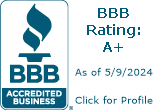Sales Tax Consulting
Does Your Business Need Sales Tax Consulting?
Do you have sales tax nexus in your state? Are you selling a taxable product? If so, how do you collect sales tax? How do you properly complete sales tax filing? Sales tax rules and regulations are subject to frequent change, and every state is different. Maintaining compliance is challenging – yet critical.
In our 16 years of service, we have never engaged with a client we could not help. Sales tax is a demanding subject. Without an expert on your team, saying compliant without spilling into overcompliance and overpayment is challenging – to say the least.
As sales and use tax pioneers, we’ve paved the way for business savings through beneficial and relevant interpretation of sales tax law.
National Recognition for Growth & Excellence
As a 2025 Inc. 5000 honoree, Agile Consulting Group stands among the nation’s most dynamic private companies, delivering measurable results for our clients year after year.

Ready to get started? Speak with an expert!
Recover Sales Tax Refunds
What Are Sales Tax Recovery Reviews (Reverse Audits)?
A sales tax recovery review, or reverse sales tax audit, is a detailed analysis of business operations to uncover sales tax refunds. In other words, we identify and return money due you from overcompliance errors. Every reverse audit is distinct, because exemptions vary from state to state, and every business is unique.
Contingency-Based Sales Tax Reviews
As a service-oriented sales tax consulting firm, we conduct our reverse audits on a contingency basis. Why? First and foremost, contingency-based reviews benefit our clients – there is no risk in engaging with our sales tax consultants to see if we can be of assistance. Second, we are confident in our ability to deliver savings to our clients, often exceeding our customers’ expectations.
Sales Tax Consulting Services that Deliver Tangible Savings
Why let the state keep your money?
Align your tax and accounting systems with current tax laws
Sales and use tax law is constantly changing. Some come in the form of law changes, while others are a change interpretation of an existing law. When was the last time your tax and accounting systems were updated to capture such changes?
Maximize the benefit of the exemptions for which you qualify
State legislators, other taxpayers, the courts and even state taxing authorities have carved out tax exemptions intended to benefit your business. Take full advantage of them!
Recover prior overpayments
Each state has defined an open look-back period to allow taxpayers to identify and request refunds for taxes paid in error. If you don't act within this open statute of limitations, then the state gets to keep your tax dollars whether they were billed correctly or not.
Eliminate future overpayments
Based on your specific operations, we develop and share a custom taxability matrix that classifies common categories of purchases into taxable and non-taxable status to help you leverage these improvements going forward.
Train and educate your in-house staff
Whether the determination of taxability of purchases within your organization rests in the hands of purchasing, accounts payable or accounting, use our findings and taxability matrices to train and educate. Want help? We'll train your staff for you.
Develop ongoing, trusted advisor relationship
We view these recovery reviews as being similar to a doctor's physical exam - an event that should happen on a recurring basis to ensure good health. We want to build an ongoing relationship with you and become your go-to solution for external sales and use tax assistance.
Sales Tax vs Use Tax
Sales tax and use tax are commonly a source of confusion! Which one relates to your business? Do you need to worry about both? Are they the same thing? Although sales and use tax are complementary (and sometimes collected at the same time), they are different.
Sales Tax
Sales Tax is remitted to the state’s Department of Revenue by a registered service person or retailer. Generally, sales tax applies to the end user of a service or product and is charged to the purchaser at the point of sale. Sales tax is often added to the total sales price.
Use Tax
Use Tax is submitted to the Department of Revenue by the purchaser if sales tax was not collected when the merchandise was sold. For example, if an item were purchased exempt from tax then used in a taxable manner, use tax would have to be paid.
Find the sales tax exemptions for your state
We’ve compiled state-specific research regarding the sales and use tax exemptions available in each state. You’ll also find helpful links to sales and use tax related content for each state revenue agency.





